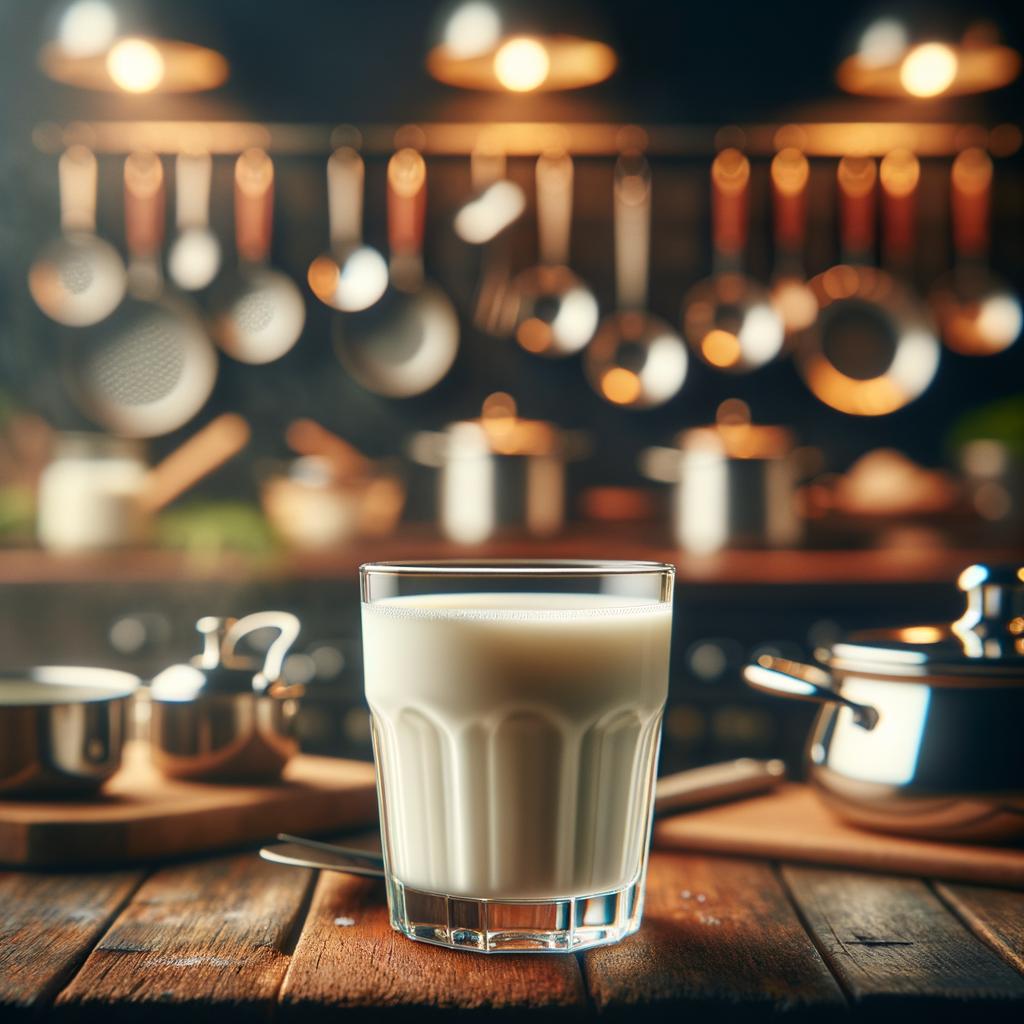Buttermilk

Description
Buttermilk, a unique ingredient with a rich history, is a slightly thickened liquid that is left behind after churning butter from cream. Its appearance is a creamy white color with a velvety texture that is thicker than regular milk but not as heavy as cream. Buttermilk has a distinct tangy flavor profile, a result of the lactic acid that forms during the fermentation process. This unique characteristic sets it apart from other dairy products, as it adds a delightful tartness and richness to various dishes.
Primary Uses
Buttermilk is a versatile ingredient used extensively in both cooking and baking. Its acidic nature makes it an excellent tenderizer in marinades, particularly for chicken. It's a key component in classic American dishes like buttermilk pancakes and biscuits, where it provides a soft, fluffy texture. In Indian cuisine, it's often consumed as a beverage or used in curries and chutneys. Besides culinary uses, buttermilk is also used for its skin-enhancing properties in various beauty treatments.
History
The history of buttermilk is as rich and creamy as the ingredient itself. Its origin dates back to the ancient times when people used to churn butter by hand and the residual liquid was consumed as a refreshing beverage. This 'butter-milk' was highly valued for its cooling properties, especially in warmer climates. Over time, its use in baking and cooking has become more widespread due to its ability to tenderize gluten and add moisture to baked goods. An interesting folklore associated with buttermilk is that it was considered a drink of the gods in ancient Celtic mythology.
Nutritional Information
Buttermilk is a nutritionally rich ingredient. It is a good source of protein, calcium, vitamin B12, and probiotics, which are beneficial for gut health. It's lower in fat and calories compared to whole milk, making it a healthier alternative. Regular consumption of buttermilk can aid in digestion, strengthen bones, and boost immunity. However, as it contains lactose, it may not be suitable for those with lactose intolerance. Compared to similar ingredients like yogurt, buttermilk is less tangy and has a thinner consistency, but offers a similar nutritional profile and health benefits.
In the end, buttermilk is not just an ingredient; it's a tale of transformation from a simple by-product to a beloved culinary star.

